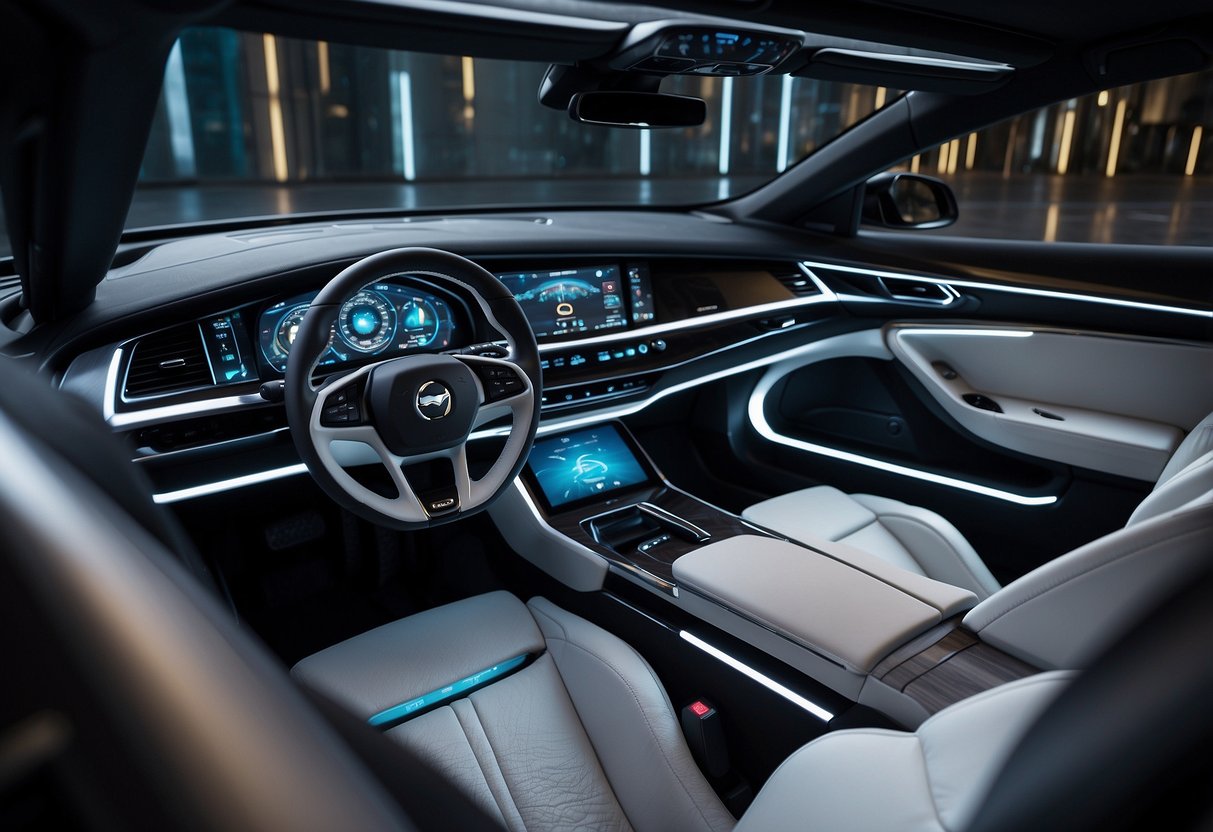
As the automotive industry gears up for 2024, car enthusiasts and buyers face a market brimming with technological innovations. Advances in vehicle technology promise to enhance safety, comfort, and convenience, making the driving experience more enjoyable and secure than ever before. Among the most anticipated features for 2024 are advanced driver-assistance systems (ADAS) that support semi-autonomous driving.
Electric vehicles (EVs) are leading the charge in redefining the transportation landscape. With longer ranges, faster charging times, and more extensive charging networks, EVs are becoming a more viable option for everyday use. Expect to see more models equipped with ultra-fast charging capabilities and extensive integration with smart home systems.
Customization and personalization take center stage in 2024’s car tech trends. Vehicle interiors are set to become more adaptive, with AI-driven interfaces that learn driver preferences over time. Drivers can look forward to a more intuitive interaction with their cars, from personalized climate control to tailored entertainment options. These advancements ensure a more comfortable and engaging driving experience, tailored to individual needs and preferences.
Decoding the Future of EVs
Electric vehicles (EVs) are transforming with cutting-edge advancements in AI performance, eco-friendly designs, and innovative charging technologies. Each aspect plays a crucial role in shaping the future of electric mobility.
From AI-Enhanced Performance to Eco-Friendly Design
Artificial intelligence is revolutionizing electric cars by optimizing their performance. AI-driven systems manage energy consumption more efficiently, increasing the range of EVs. Self-learning algorithms analyze driving patterns and predict maintenance needs, reducing downtime.
Eco-friendly designs in electric cars are advancing with new materials and manufacturing processes. Lightweight composites and recycled materials help reduce the overall carbon footprint of production. Improved aerodynamics enhance energy efficiency, making cars more sustainable without compromising on performance.
Leading Electric Vehicles
Automakers are racing to dominate the EV market with innovative models. Brands like Tesla, Rivian, and Lucid Motors are at the forefront. Tesla’s Model S Plaid boasts high acceleration and long-range capabilities. Rivian’s R1T offers off-road prowess with a focus on durability and adventure.
Lucid Motors’ Air sedan impresses with luxury and extended range. Traditional automakers like Ford and BMW are also investing heavily in electrification. Ford’s Mustang Mach-E and BMW’s i4 reflect a blend of performance, style, and sustainability.
The Transformation of Charging Technologies
Charging technology for electric vehicles is rapidly evolving. Ultra-fast chargers can replenish an EV’s battery to 80% in under 30 minutes. Wireless charging pads simplify the process, allowing drivers to park and charge without plugging in.
Smart grids are being developed to manage energy distribution more efficiently. This reduces strain on the power grid during peak times. Solar-powered charging stations are emerging as environmentally friendly solutions, utilizing renewable energy to power EVs.
The Rise of AI in Automotive Technologies
AI-driven advancements are transforming the automotive industry, enhancing the driving experience, delivering more intuitive infotainment systems, and optimizing navigation through machine learning. These developments offer practical benefits and innovative features for modern car users.
Artificial Intelligence and Driving Experience
The integration of artificial intelligence into the driving experience aims to create safer, more responsive environments. AI systems can monitor driver behavior, such as eye movement and alertness, to provide real-time feedback or interventions to prevent accidents.
Features like adaptive cruise control and lane-keeping assist, powered by AI, adjust to traffic conditions and driver preferences. These technologies reduce the burden on drivers while enhancing safety by making split-second decisions.
Additionally, AI contributes to predictive maintenance by alerting the driver about potential issues based on data analysis from various sensors. This proactive approach helps in reducing unexpected breakdowns and extends the vehicle’s lifespan.
AI-Integrated Infotainment Systems
Infotainment systems are becoming increasingly sophisticated with AI integration. Mercedes-Benz’s MBUX system and other advanced platforms leverage AI to offer personalized and intuitive user experiences. These systems learn from user behavior to recommend media, navigation routes, and even adjust climate settings automatically.
Natural language processing, exemplified by technology like ChatGPT, allows drivers to interact with their infotainment systems more naturally. Voice commands can adjust settings, make phone calls, and navigate routes without requiring detailed instructions.
AI also enables enhanced connectivity features, ensuring seamless integration of smartphones and wearable devices. Drivers can access important information and entertainment options with minimal distraction, contributing to a more enjoyable driving experience.
Machine Learning in Vehicle Navigation
Machine learning is revolutionizing vehicle navigation. AI-driven navigation systems analyze vast amounts of data from multiple sources to provide the most efficient routes. These systems also adapt to the driver’s habits and preferences over time, offering personalized route suggestions.
For example, they can factor in real-time traffic updates, weather conditions, and historical data to avoid congested areas. This level of precision helps in reducing travel time and improving overall fuel efficiency.
Machine learning algorithms also assist in predictive routing, which forecasts potential delays and suggests alternative routes proactively. These advancements ensure that navigation systems remain dynamic and responsive, enhancing the overall driving experience.



